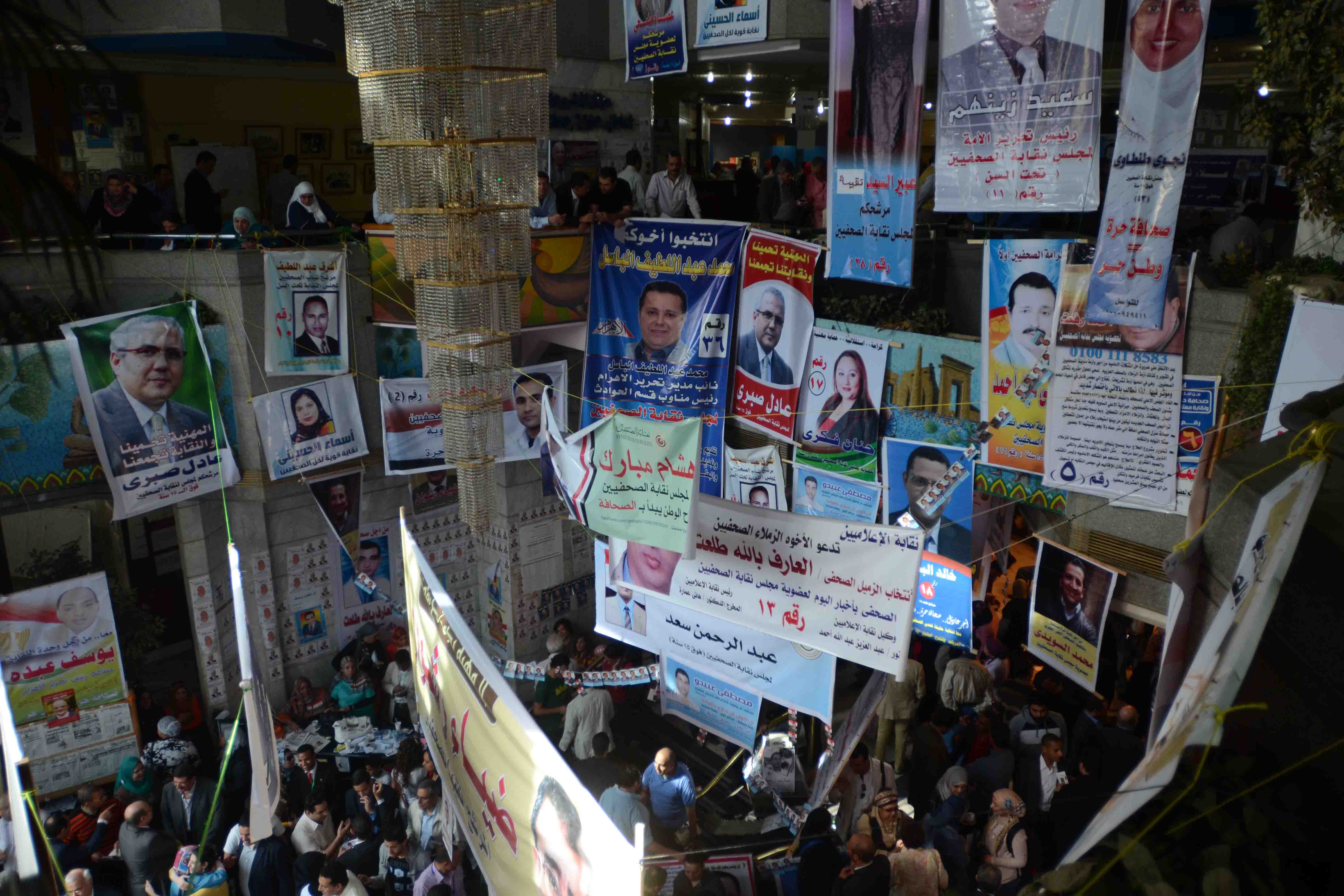CAIRO: Six months on, women say they are yet to reap the benefits of a revolution that explicitly called for equality and social justice, with women missing from key positions that are helping shape the country in its transitional phase.
There are no women on the committee assigned to draft the constitution, no women appointed as governors, and only one woman in the new Cabinet of ministers.
The recently appointed all-male governors infuriated women rights’ organizations and political players, especially since the Minister of Local Development Mohamed Atteya, had told the media that he and Prime Minister Essam Sharaf were considering the nomination of women as governors and that they were in the process of choosing the new governors.
The Egyptian Center for Women’s Rights said in a statement that the exclusion of women in Egypt turned into a systematic policy which calls for an announcement of a strategy for working on eliminating discrimination against women, restructuring the National Council For Women as a national machinery expressing women in Egypt, and the necessity of developing a mechanism which guarantees fair representation of women in all positions based on the criteria of efficiency.
On his Twitter account, presidential hopeful Mohamed ElBaradei also reacted to the appointment of governors, writing, “Not a single woman among the 27 governors. What happened to so called equality?”
Activists and rights organizations are striving for is an equal society, “a society where people are not judged by who they are, and criteria like sex, gender, sexual orientation, religion, sect, ethnicity are not important, where every one exercises his or her rights equally,” noted Fatma Emam, an Muslim feminist and head of the fields research unit at Nazra for Feminist Studies, a women’s rights-focused research organization.
Besides feeling sidelined during this transitional period, there is also a great anxiety related to women’s status if Islamists came to power.
“The Islamist movements had a very patriarchal and outdated discourse towards women […] this discourse need to be contested from within the paradigm and from outside it as well,” noted Emam.
“However, I see that if we managed to establish a new republic based on the full and equal citizenship, women rights should be granted and guarded by the power of law,” she added.
The right time
During the 18-day uprising, women of all ages, religions and socioeconomic backgrounds were ever present in Tahrir Square, and like their male counterparts, female protesters spent nights in the square, confronted riot police, were attacked and defended themselves against the thugs.
The picture however started to appear bleak when, less than a month later, women were forced out of Tahrir Square during a march they had organized to mark International Women’s Day on March 8.
Some men infiltrated the march chanting against and harassing the women, forcing some out of the square, claiming it was “not the right time” to address women’s issues.
Country Coordinator of UN Women in Egypt, Maya Morsy, said “there is no right time or wrong time to include women.”
‘No democracy without women’
Morsy, outlined three crucial steps women must follow during the current transitional period to democracy in order not to lose the momentum they gained by their participation in the uprisings.
First, building strong women’s rights movements to identify their demands and relay them to the state and call for policy changes.
Morsy noted that it must be “one voice and not fragmented voices and demands.”
In relation to this, the Egyptian Women Charter that was announced at the first National Women’s Convention in June with 3000 women and men participating, outlined six demands for women including no exclusion or discrimination against women as well as guaranteeing their representation in the various fields.
The charter said the government should also hold its commitment to all international human rights conventions including the convention on the Elimination of all forms of discrimination against women.
It also guarantees women’s right to equal opportunities, fair and just laws, human security, education and healthcare. The fourth demand calls for reviewing all discriminatory legislation against women and redressing it on the basis of equality and justice. The fifth calls for the establishment of a national women’s machinery linked to all ministries and governorates to support and activate the role of women.” Finally, the charter urges the media to support women’s role by portraying a true and positive image through raising awareness, challenging stereotypes and opening opportunities for discussion.
According to Morsy, the second step in this transitional period pertains to the social, political and economic rights in the constitutional and legal reform.
“Focus on political parties’ formation and women’s inclusion and representation; gender responsiveness of political parties and institutions; the impact of quotas and other temporary special measures for increasing the representation of women in democracy,” she explained, “[we should also focus on] issues of access to campaign finances; female candidate’s access to the media during election campaigns; violence against women in elections, intimidation, such as domestic coercion, of women voters, and the gender responsiveness of electoral management bodies and processes, constitutional and legal reform.”
The third step is having a gender-responsive accountability system which can better reflect women’s concerns, both through reforms in formal accountability systems as well as mechanisms generated from civil society, such as citizen report cards and public audits.
“In the democratic transitional political phase that Egypt is facing, the achievement of gender equality and the respect of women’s human rights is an essential component for the establishment of sustainable and good governance,” she said.
Furthermore, she added that a necessary step towards democratic governance is the engendering of a concept of citizenship that provides women with the opportunity to become full and active citizens in all spheres.
“Effective political and social participation will benefit greatly from women as ‘agents of development’ and perpetrators of change, as a pre-requisite to democratic survival,” she pointed out.
According to Zaida Arguedas, deputy executive director of the League of Women Voters of the United States and Director of its Global Democracy Programs, women’s number one priority should be to “get your ID and go vote.”
“[Women need to] overcome fear of going into a polling booth and making a decision and be aware of the power they have by voting, if I don’t vote I’m making other people make decisions for me,” she added.
“Numbers are important to convince people and show they’re passionate about the issue, the whole world is looking for significant change and the success of women in Egypt but what’s more effective than international pressure is pressure within,” explained Arguedas who worked on global programs in five areas of competency: advocacy, grassroots democracy, good governance, elections, and women’s leadership.
She also advised that “We as women can’t be too picky, we’re always in the background so if we find a door opening we have to go in, then be forceful.
“It takes time but over time you can make changes happen.”
On final note, Morsy said, “[There is] no democracy without women.”
Practices and traditions
The problem of female representation is not only a problem in Egypt but all over the Arab World, according to Khalid Haribi, managing director of Tawasul, the first national independent and professional private think-tank in Oman and a candidate for Salalah Shura.
“Our inability to unleash the great potential of women as equal partners is one of the main reasons why until today our Arab societies movements and uprisings did not lead to renaissance and advancement,” said Haribi.
Haribi explained that there have always been internal and external factors that contributed to a lack of progress in women advancement. These internal factors may be that women themselves due to centuries of wrongful traditional practices are not able to be proactive in their own emancipation.
“Practices in our education, traditions, even morals have planted an idea that women’s only place is to be an obedient follower and never to be a partner nor a leader. What is alarming is that these wrongful practices against women have developed into ideas and ways of thinking that significant segments support and consider a way of life and challenging them would be betrayal of our values,” he said.
Externally, Haribi noted, activists, NGOs and media were not successful in turning empathy into gains for women. What he refers to as the “unintentionally provocative approaches” which carry condescending tones have contributed to the lack of progress in women’s status.
“The way some activists, NGOs, and even a few feminists fight back against discrimination against women has been in some case counter-productive, and any positive effects have been limited to women who had more access to freedom, and not women living in traditional settings,” Haribi explained.
“Ironically, Arab leaderships have supported women in decision making positions, there are indications now that these cosmetic affirmative action for women, such as quotas, do not lead to long-term positive impact in the mentality of the societies.”


